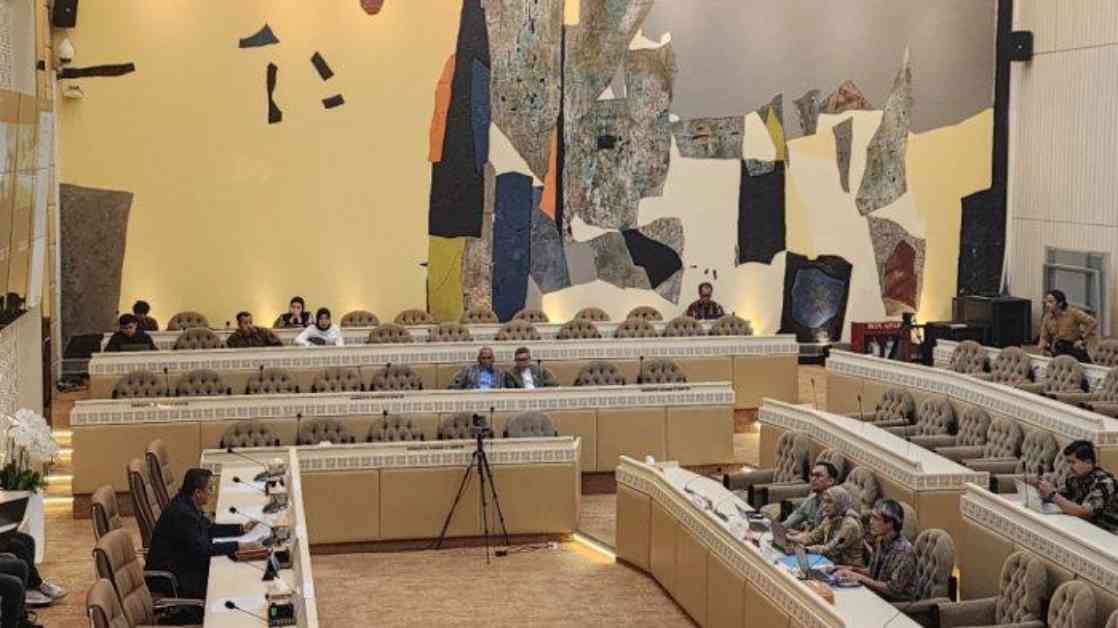A recent study conducted by Mudiyati Rahmatunnisa, the Head of the Graduate Program in Political Science at Padjadjaran University, sheds light on the increasing trend of single candidates in the upcoming 2024 Regional Elections. According to data presented during a Public Hearing with the Indonesian House of Representatives, there are 37 single candidate pairs set to compete in the 2024 elections. This phenomenon, as highlighted by Mudiyati, raises concerns about fundamental issues that could potentially undermine the quality of democracy in Indonesia.
During the Public Hearing with the House of Representatives, discussing Political Systems and Election Systems for Amendments to the Election Law and Regional Head Election Law, Mudiyati emphasized that this trend signifies a variety of underlying problems that have the potential to erode democratic values. “This actually indicates several things, including the failure of political parties to nominate their own members. This is a homework assignment for political parties,” Mudiyati stated during the session at the House of Representatives in Jakarta.
The discussion regarding elections, according to Mudiyati, cannot overlook the institutionalization of political parties, which may be addressed in future party laws. Furthermore, Mudiyati expressed concerns that the rising number of single candidate pairs reflects a decline in the quality of democracy. “Regional elections should provide choices for the people. However, with single candidates, the essence of competition is lost. The public is only given the option to agree or disagree through an empty box. In my opinion, this is the dark side of democracy, even if it is legal,” she remarked.
Moreover, Mudiyati revealed that single candidates have a negative impact on the accountability of local governments. Without a strong opponent, single candidates are less likely to offer better programs. “Single candidates result in decreased accountability of local governments because without a strong opponent, single candidates lack the incentive to promote better programs,” she explained. Mudiyati also pointed out that the phenomenon of single candidates could strengthen transactional politics. Many political parties prefer to join forces with strong candidates rather than nominating their own members. “Parties choose to ally with strong candidates rather than nominating their own members. This can create damaging transactional politics that undermine the quality of democracy,” she added.
Highlighting the potential risks of corruption and abuse of power, Mudiyati emphasized the importance of having a strong opposition to hold local leaders accountable. “The potential for corruption and abuse of power increases when local leaders do not have a strong opposition to keep them in check,” she warned. Additionally, she noted that the rise of single candidates could lead to decreased voter participation. “Single candidates also suggest low voter turnout, as people feel there are no meaningful choices available,” Mudiyati concluded.
### Expert Insights on the Impact of Single Candidates
In light of Mudiyati’s research, it is evident that the surge in single candidates poses significant challenges to the democratic process in Indonesia. As political parties grapple with internal issues and strategic alliances, the essence of fair competition and voter choice is at risk of being compromised. By addressing the root causes of this trend and promoting greater inclusivity and accountability, policymakers can work towards safeguarding the integrity of the electoral system and preserving the democratic principles on which the nation is founded.
### Strategies for Ensuring Democratic Values in Elections
To counter the negative effects of single candidates on democracy, it is crucial for political parties to prioritize internal reforms and candidate selection processes. By fostering a culture of transparency, inclusivity, and meritocracy within party structures, parties can empower a new generation of leaders and promote healthy competition in the political arena. Moreover, civil society organizations and electoral watchdogs play a vital role in monitoring the electoral process and holding candidates accountable for their actions. Through collaborative efforts between stakeholders, Indonesia can strengthen its democratic institutions and uphold the rights and interests of its citizens.






















